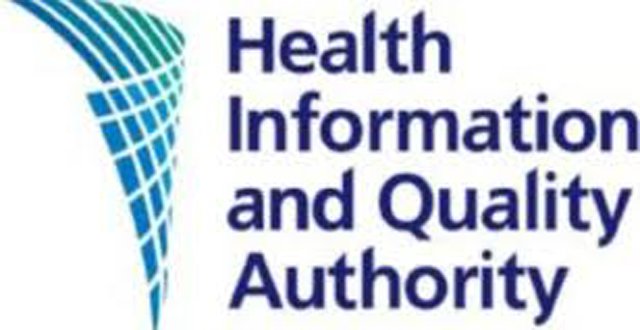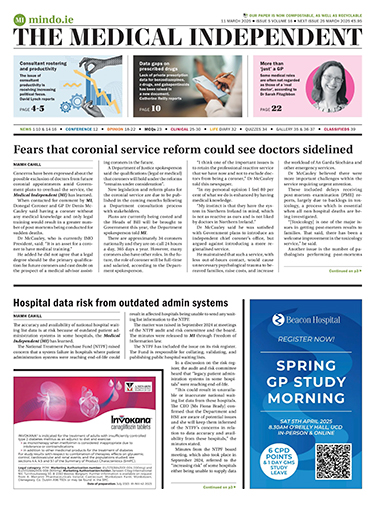HIQA has published a report on approaches for considering the expansion of newborn bloodspot screening programmes. This report was provided to the National Screening Advisory Committee (NSAC) to help inform the development of their processes for the assessment of conditions being considered for inclusion in Ireland’s National Newborn Bloodspot Screening Programme (NNBSP).
The NNBSP provides newborn bloodspot screening (the ‘heel prick test’), within the first 72 to 120 hours of life. The current NNBSP screens for eight conditions and each year the NNBSP identifies approximately 110 babies in Ireland with one of these conditions. In 2020, the NSAC recommended the addition of a ninth condition to the programme, and, following the approval of this recommendation by the Minister for Health, the HSE has been making arrangements for its inclusion.
HIQA undertook a review of nine countries recognised as having described policy-making processes in place for their newborn bloodspot screening programmes. The review of the academic literature and relevant policy documents examined how and why these countries decide on conditions to screen for. The review also included an examination of the range of conditions currently screened for, as well as the role of emerging technology in NBS programme expansion internationally.
The report notes that, when considering expansion of a screening programme, important ethical, legal and social implications must be taken into account; these include the perspectives of a broad range of stakeholders, such as, the child, their family, scientists, healthcare professionals, and public health professionals. Furthermore, the resources required to expand the programme should be considered at an early stage.
HIQA has recommended that an explicit, structured approach to each aspect of policy-making on this topic should be prepared to ensure consistency and transparency into the future.
Dr Máirín Ryan, HIQA’s Deputy CEO and Director of Health Technology Assessment, said: “The current newborn screening programme is highly successful with consistently high uptake rates, estimated at around 99.9%. In considering further expansion of the programme, it is vital that the existing processes are protected and maintained and that any expansion of the programme is preceded by clearly defined and transparent decision-making to ensure ongoing trust and confidence in the programme.”
Dr Ryan continued: “International screening advisory groups are increasingly recognising the importance of a ‘life-cycle’ approach to making recommendations on newborn bloodspot screening. This includes taking a thorough look at the practicalities of adding a new condition to the programme, and making sure there is a long-term plan for the success of the programme, including its evaluation.”













Leave a Reply
You must be logged in to post a comment.